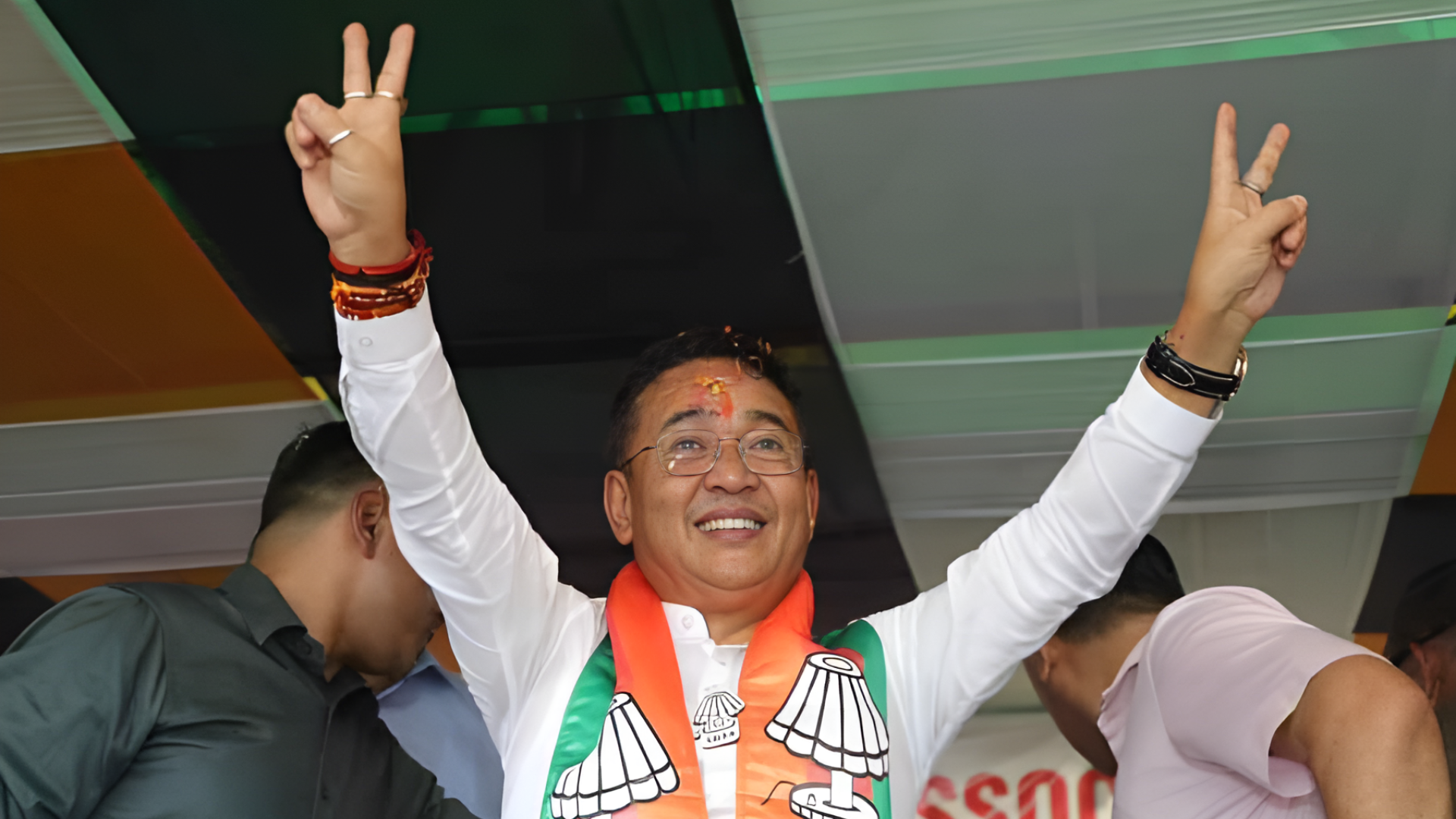The political landscape in India’s northeastern Himalayan states of Sikkim and Arunachal Pradesh witnessed significant shifts as votes were counted in the recently held Assembly elections. The Sikkim Krantikari Morcha (SKM) emerged victorious in a spectacular fashion, securing an impressive 31 out of 32 seats in Sikkim’s Assembly.
Meanwhile, in Arunachal Pradesh, the Bharatiya Janata Party (BJP) clinched a resounding win with 46 out of 50 counted seats in its favor. The BJP’s ally, Conrad Sangma’s National People’s Party (NPP), added to the coalition’s success by securing five seats. Notably, ten BJP candidates in Arunachal ran unopposed, reflecting a significant show of confidence in the party’s agenda.
Prime Minister Narendra Modi extended his gratitude to the people of Arunachal Pradesh for their overwhelming support. He expressed appreciation for their trust in the BJP’s vision of developmental politics, promising renewed dedication to the state’s progress.
In response to the election results, Chief Minister Pema Khandu of Arunachal Pradesh interpreted the outcome as a vote of confidence for a decade of developmental initiatives, underscored by strong central support. He hailed the victory as a testament to the BJP’s enduring popularity, hinting at a potential third term for Prime Minister Modi.
On the other hand, in Sikkim, the incumbent Sikkim Krantikari Morcha secured a landslide victory, capturing 31 out of 32 seats. The Opposition Sikkim Democratic Front managed to secure just one seat, marking a significant shift in the state’s political dynamics.
Chief Minister Prem Singh Tamang of Sikkim expressed gratitude to the electorate and party members for their unwavering support. He attributed the victory to the party’s dedicated efforts in serving the people, resonating with their aspirations effectively.
Thank you Hon’ble Union Minister Shri @MundaArjun Ji for your kind words. https://t.co/HFO1JD8gUD
— Prem Singh Tamang (Golay) (@PSTamangGolay) June 2, 2024
Thank you Hon’ble Union Minister Shri @sarbanandsonwal Ji. Your supportive words are deeply appreciated as we work diligently to realize our vision for Sikkim’s development and prosperity. https://t.co/MdRhnYC3f3
— Prem Singh Tamang (Golay) (@PSTamangGolay) June 2, 2024
However, the election also marked a historic moment as Pawan Chamling, the longest-serving Chief Minister in India, lost from both seats he contested under the Sikkim Democratic Front’s banner, signaling a notable shift in leadership dynamics.
In terms of other parties’ performance, the Congress secured one seat in Arunachal Pradesh, followed by the Nationalist Congress Party (NCP) with three seats, and the People’s Party of Arunachal with two seats. Additionally, three independent candidates emerged victorious in the state.
The 2019 Assembly elections had seen a diverse representation with the Janata Dal (United), National People’s Party (NPP), Congress, and People’s Party of Arunachal (PPA) all securing seats alongside independent candidates. The 2024 elections, however, witnessed significant consolidation of power for the BJP and its allies in both states.
Despite differing voter turnout percentages – with Sikkim recording 79% and Arunachal Pradesh boasting an impressive 82.7% – the electoral outcomes reflect a decisive mandate for the ruling parties and a shift in political preferences among the electorate.
Looking ahead, the focus now shifts to the counting of votes for the lone Lok Sabha seat in Sikkim and Arunachal’s two seats, scheduled for June 4. These results will further shape the political landscape and indicate broader trends in the region’s electoral dynamics.
READ MORE : Election Commission Schedules Repolling For Barasat And Mathurapur In West Bengal On Monday






















